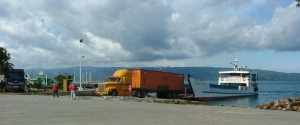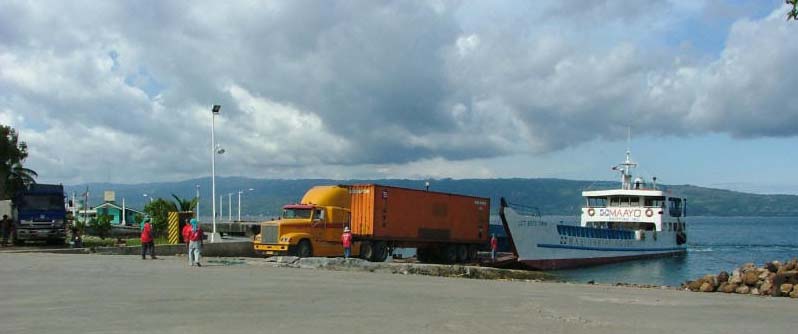 The public-private agency Philippine Export Development Council (EDC) is urging the immediate amendment of Executive Order 170 to expand the Roll On-Roll Off (ro-ro) policy to include the trailer-chassis system as part of the ro-ro service.
The public-private agency Philippine Export Development Council (EDC) is urging the immediate amendment of Executive Order 170 to expand the Roll On-Roll Off (ro-ro) policy to include the trailer-chassis system as part of the ro-ro service.
In a letter addressed to Transportation and Communications Secretary Manuel Roxas II, Meneleo Carlos, Chairman of the EDC Networking Committee on Transportation, said the expansion is in line with President Benigno Aquino III’s initiative of promoting the establishment of the ro-ro project to connect the Philippines to the rest of Asia. This is also embodied in the Philippine Development Plan 2011-2016.
The EDC policy brief on the issue said the move will also be consistent with the agreement during the 17th ASEAN Summit in Hanoi, Vietnam where the leaders adopted the Masterplan on ASEAN connectivity. Contained in this plan is the Philippine initiative to establish an ASEAN ro-ro shipping network as one of the key strategies to enhance physical connectivity in the region.
For the ASEAN ro-ro system, the operation will be predominantly trailer-chassis ro-ro or cha-Ro. This is the same system used in Shanghai, China, Hakata, Japan ro-ro route as well as the China-South Korea ro-ro link.
Cha-Ro is a mode of ro-ro shipping where the container mounted on a chassis is loaded on and off the ro-ro by a prime mover (tractor). Only the container mounted on the chassis is transported by the ro-ro ship.
The use of the cha-Ro facilitates faster transit times from warehouse to final destination; addresses the left-hand, right-hand drive issue; eliminates the need for vehicle/driver registration and accreditation; avoids labor displacement/issue on the movement of natural persons from country to country; lowers transport cost by about 15 to 20% mainly because the prime mover, which is an expensive equipment, is not required to travel with the chassis-mounted container; and improves service as proven by the cha-Ro services in Shanghai, China where it takes four hours to load/unload 600 containers mounted on chassis onto/from the ro-ro ship.
The paper further explained the existing ro-ro policy in the Philippines under EO 170 limits the ro-ro service definition only to self-powered rolling cargoes like cars, jeeps, trucks and buses and excludes cha-Ro. As a result, the incentives for the ro-ro service such as elimination of cargo handling and wharfage fees do not apply to Cha-Ro.
Meanwhile in the same letter, Carlos reiterated the need to repeal Letter of Instruction (LOI) 1005-A to remove the Philippine Port Authority’s (PPA) conflict of interest in being both a port operator and regulator. PPA earns 10% to 20% from cargo-handling revenues of port operators. The repeal is expected to help lower shipping costs in the country.
A separate EDC policy paper on this issue explained that the Charter that created the PPA made the agency an enterprise and a regulatory agency. As an enterprise, the PPA owns, develops, maintains, operates and generates income from its ports. As a port developer, it has established a port system consisting of over 100 ports throughout the country. The PPA also allowed the development of private non-commercial ports and a few private commercial ports. As a port operator, it outsources operation of its major terminals to the private sector while maintaining ownership.
On the other hand, as a regulator, the PPA oversees the entire Philippine ports system and handles the issuance of permits for the construction and operation of a private port; approval of petitions for rate increases and collection of shares from cargo-handling revenues and port dues of about 50% of private commercial ports.





